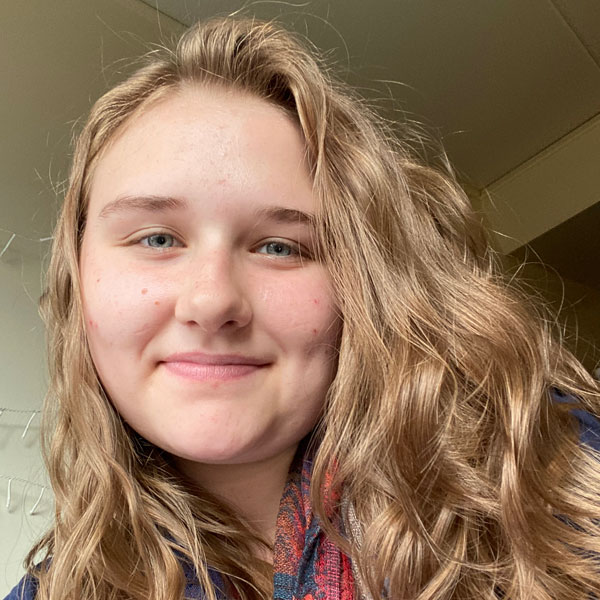
“What’s in a name?”: How Just the Word “Autism” affects Autism Stigma

Name: Allison Ringold
Majors: Cognitive Behavioral Neuroscience and German Studies
Advisors: Grit Herzmann, Mareike Herrmann
Autism Spectrum Disorder (ASD) or Autism has a variety of definitions and characteristics that are not always agreed upon. This is largely because of its complicated history. Along Autism’s winding path to how it is known today, it has taken on many names and definitions: Bleuler’s original use in schizophrenia patients, Kanner’s work with Childhood Autism, and Hans Asperger’s involvement in the killing of autistic children have all shaped the definitions of what is considered today different forms of autism. Even today, the nature of the neural basis of Autism is debated in scientific literature. Some argue for a deficit model, but others argue for a model of hyper-connectivity and hyper-functionality, such as the “Intense World Theory of Autism”. One thing common to all forms and definitions of autism, though, is autism stigma, defined as negative beliefs and stereotypes about autistic people. In the current study, just the word “autism” in a non-symptomatic vignette was enough to show a tendency of increased stigma, though this effect was not significant. In addition, because of German and German-speaking countries’ history with autism and cultural similarities and norms in line with some autistic traits, autism stigma was measured in a German-speaking population. However, there were not enough participants to draw a meaningful conclusion. This does not mean, however, that autism stigma in the US and German-speaking countries does not exist. In fact, it does suggest a high prevalence of autism stigma because a trend of autism stigma could be identified in such a small group of people.
Autismus Spektrum Störung (ASS) oder Autismus hat eine Vielzahl von Definitionen und Charakteristika, über die sich nicht immer alle einig sind. Dies hat mit der komplizierten Geschichte von Autismus zu tun. Autismus, wie wir heute das kennen, hatte über die Jahre viele Namen und Definitionen: Bleuler und seine Schizophrenie-Patienten, Frühkindlicher Autismus von Kanner, und Hans Asperger und die Tötung von autistischen Kindern spielten alle eine Rolle, bei der Definitionen, von dem, was wir heute verschiedene Arten von Autismus nennen. die Natur der neuronalen Grundlagen des Autismus wird bis heute in der wissenschaftlichen Literatur debattiert. Einige befürworten ein Defizitmodell, andere befürworten ein Modell der Hyperkonnektivität und Hyperfunktionalität, z.B. das “Intense World Theory of Autism”. Eine Gemeinsamkeit bei alle die Formen und Definitionen von Autismus ist jedoch das Autismus-Stigma, definiert als negative Überzeugungen und Stereotypen über autistische Menschen. In der vorliegenden Studie reichte allein das Wort “Autismus” in einer nicht-symptomatischen Vignette aus, um eine Tendenz zu erhöhter Stigmatisierung zu zeigen, obwohl dieser Effekt nicht bedeutend war. Darüber hinaus wurde die Stigmatisierung von Autismus aufgrund der deutschen und deutschsprachigen Geschichte mit Autismus und der kulturellen Ähnlichkeiten und Normen, die mit einigen autistischen Merkmalen übereinstimmen, in einer deutschsprachigen Bevölkerung gemessen, obwohl es nicht genügend Teilnehmer gab, um eine aussagekräftige Schlussfolgerung zu ziehen. Dies bedeutet jedoch nicht, dass es in den USA und den deutschsprachigen Ländern kein Autismus-Stigma gibt. Vielmehr deutet es auf eine hohe Prävalenz des Autismus-Stigmas hin, weil es in einer so kleinen Gruppe von Menschen festgestellt werden konnte.
Posted in Comments Enabled, Independent Study, Symposium 2023 on April 11, 2023.
4 responses to ““What’s in a name?”: How Just the Word “Autism” affects Autism Stigma”
Related Posts
Related Areas of Study
Neuroscience
Psychology, chemistry, philosophy, computer science, and other disciplines combine in the study of the nervous system
Major


Congratulations, Allison!!!
Congratulations, Allison. It looks very impressive!!! I’m looking forward to reading it.
Great to meet you today, Allison; thanks for sharing your project at the symposium!
Really cool read, nice Job!